A Woman Who Had Everything
“Blessed are those who keep his testimonies, who seek him with their whole heart.” Psalm 119:2Why did St. Clare…
…born to a noble family in Assisi, want to lock herself up in a cloister? Why did laughing, singing, sought-after Clare want to live in silence and prayer? Why did a girl whose home was a castle desire to be poor, to live by the work of her hands and the alms of the faithful?
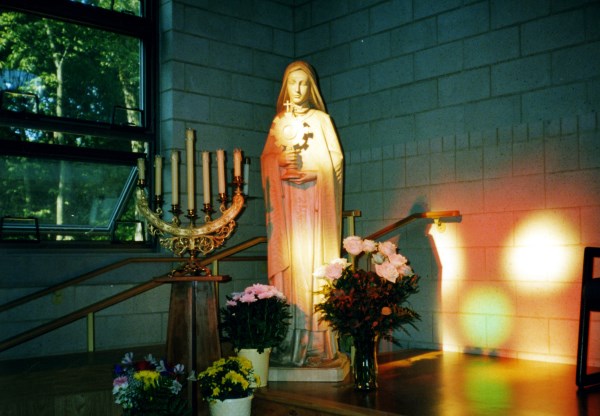
What the world calls “everything,” Clare assuredly had. It was not enough. Her heart was too great to be filled with less than the whole. She simply plunged herself into the Heart of God. There she could fulfill her destiny. There she would be another sign of contradiction to those who look for happiness everywhere except in God.
Saint Francis of Assisi was a great contemplative, but God asked him to sacrifice his love of silence and retirement to preach the Gospel, to let his contemplation overflow onto his active apostolate. Saint Clare of Assisi had a burning missionary heart, but God asked her to channel all its energies into the love and reparation of the cloister. Saint Francis was a contemplative in the marketplace; Saint Clare a missionary in her cloister. Her mission field was the whole world, though she would never see the world. Together their lives were a unit, and each the perfect complement of the other.
Spiritual Maternity of Souls
It needs a great heart to fashion a contemplative, a capacity for love so wide and deep that only God can fill it, a missionary zeal so ardent that no fewer than all the souls in the world can satisfy it. The cloistered Poor Clare is destined for the spiritual maternity of countless souls. The more perfect her life of love, the more fruitful is her motherhood of souls. Virginal love partakes of the boundlessness of Christ’s love for souls. A Poor Clare’s Divine Lover has a heart of infinite Love. It is to be expected that her own capacity for love will go on increasing as she grows in union with Him.
What stirs in the heart of a young woman called to the cloister? Or, how does she know she is called? The answers are as numerous and varied as those who are called. Maybe she read about the Poor Clares. It may be that she knelt in the public chapel and heard the chants of the Liturgy of the Hours, the Divine Office, flowing on and on in a river of prayers. Or, it may be that she knows next to nothing about the Poor Clares. And yet that small insistence in the soul remains. A vocation is a free gift of God. He does not choose a young woman because she is good, but because He is so good. The one who thinks herself qualified to be a great success in the cloister is probably the one who will fail, whereas the one who is confused and humbled at the idea that God should look towards her to fashion a contemplative nun is likely to persevere.
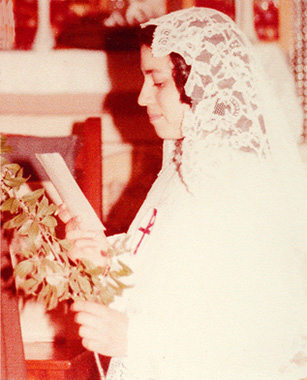
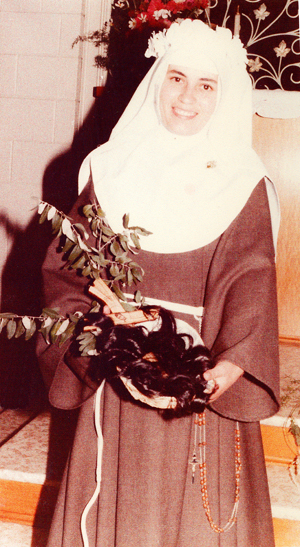
When St. Clare left her castle home…
…in the night of that Palm Sunday of 1212, she knew she was responding to the call of a Divine Bridegroom. She dressed for the occasion, wearing her finest gown, the rarest of her many jewels. And then, because they were only symbols of reality, she cast them all away in exchange for the precious pearl of her vocation to embrace the holy Gospel. St. Francis cut her lovely hair, preserved to this day in a precious reliquary in Assisi. The long silken ropes of her hair give their mute testimony to holocaust: her crowning glory laid down at the feet of her Prince. Young women continue today to follow her example, rejoicing to give all they have and are to embrace a life of Gospel poverty and penance and prayer.
“Receive me, O Lord!”
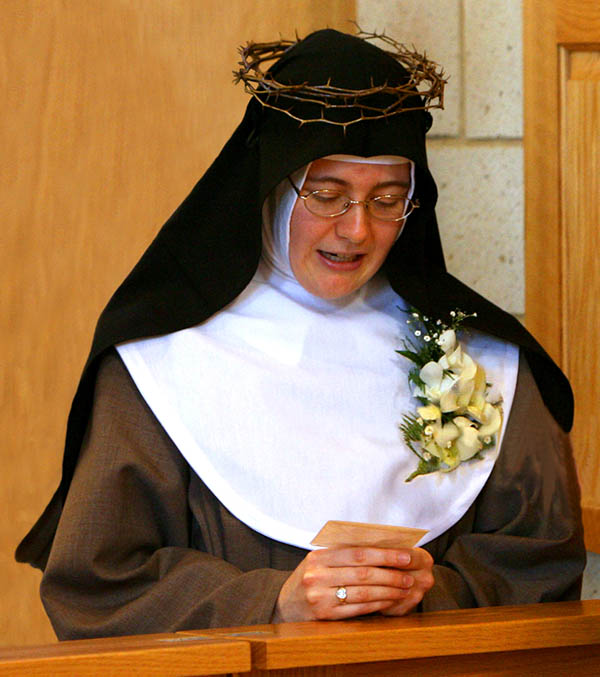
…sings the young Poor Clare about to make her solemn vows. It remains the song of her heart all the days of her consecrated life as she unceasingly offers herself to God in spousal love. Hers is an intense expression of the Church’s brideship with Christ. She has a crown of thorns on her head because hers is a crucified Lover. But first the ring of espousals is placed on her finger, giving her the utter security of a woman loved by her Divine Spouse who will always remain faithful. Thus she can proclaim: “Behold, what I have desired, I now see; what I have hoped for, I now possess; I am joined to him in heaven, whom I have loved on earth with my whole heart. I am espoused to him whom the angels serve, whose beauty the sun and moon admire.”
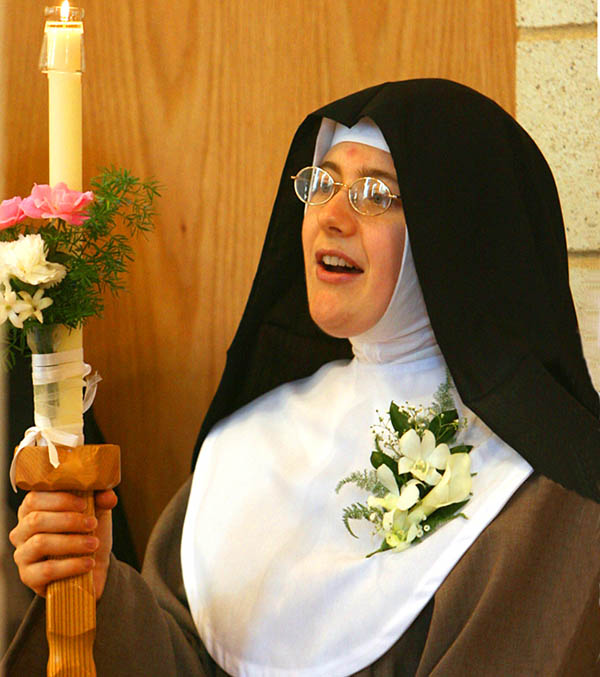
Young women between the ages of eighteen and thirty-eight, are eligible as applicants to the Order. Normal good health, a high school education and the proper qualities of mind and heart are the other requisites.
For more information, write to:
The Poor Clare Sisters
12210 South Will Cook Road
Palos Park, IL 60464
(708) 361-1810